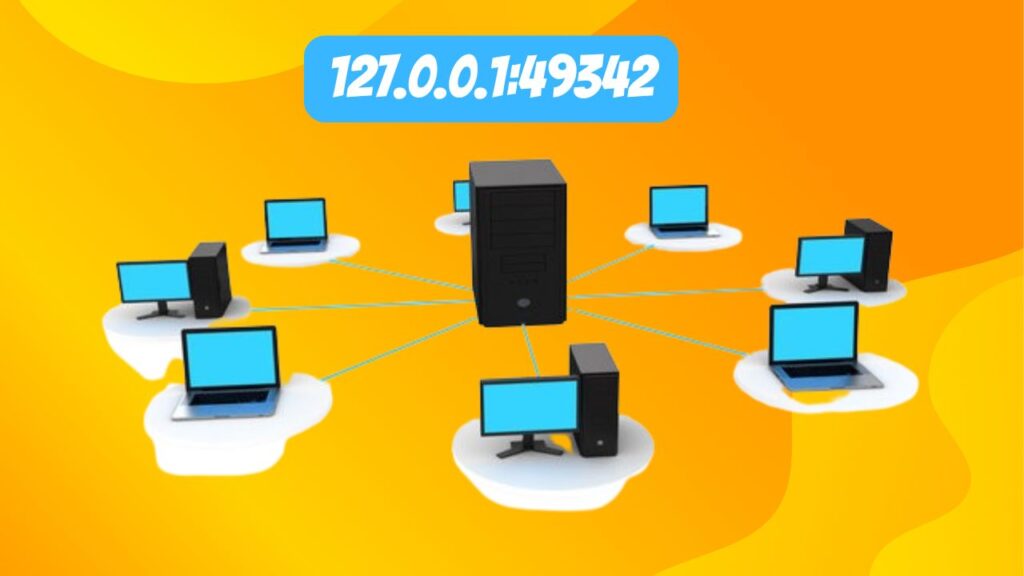
In the realm of computer networking, certain terms can seem cryptic to those not intimately familiar with the technical jargon. One such term is 127.0.0.1:49342. This address plays a crucial role in how developers test and run applications on their local machines. This article will explore the meaning of 127.0.0.1:49342, its importance, common errors associated with it, and practical solutions to those issues.
Understanding 127.0.0.1: The Basics
What is 127.0.0.1?
The IP address 127.0.0.1 is known as the localhost or loopback address. It serves as a way for a device to communicate with itself. When you direct a request to 127.0.0.1, you are effectively instructing your machine to handle the request internally, without engaging the external internet. This address is crucial for testing and debugging software in a controlled environment.
The Role of Port 49342
The number 49342 is a port number that specifies a particular service or application running on your machine. In networking, ports are like doors through which data enters and leaves the system. Each service on a computer listens on a unique port, ensuring that different applications can operate simultaneously without interference.
When combined, 127.0.0.1:49342 indicates that a certain service is accessible on the local machine via port 49342. This setup is mostly used by developers to run web applications and APIs in a safe environment before launch.
Common Uses of 127.0.0.1:49342
- Local Testing: Developers employ this address for testing software without the risk of impacting live systems or exposing development practices to the internet. It allows them to experiment and test functionalities securely.
- Database Management: Many database management systems use this setup. Developers often run local database servers, testing APIs, or web applications that require database interactions.
- Service Configuration: When configuring web servers (like Apache or Nginx) and other applications, developers typically use localhost with a specific port for testing configurations before deploying them to a production environment.
Common Errors and Their Solutions
While using 127.0.0.1:49342 can be beneficial, several errors may occur. Here are common issues and their solutions.
1. Port Conflicts
Issue: One of the most frequent problems is port conflicts. This occurs when multiple applications attempt to use the same port, causing failures in service.
Solution: To resolve port conflicts, identify which application is using port 49342. Use the command netstat -aon | findstr :49342 on Windows or lsof -i :49342 on macOS/Linux to see which process is occupying the port. You can either stop the conflicting application or configure your application to use a different port.
2. Firewall Blocks
Issue: Firewalls protect your system but can sometimes block local ports like 49342. This may prevent applications from communicating effectively.
Solution: To solve this, you need to adjust your firewall settings to allow traffic through port 49342. For most systems, you can find these settings in the control panel under the “Windows Defender Firewall” or “Firewall & Network Protection” sections. Create a new inbound rule allowing traffic to port 49342.
3. Application Crashes
Issue: Applications running on 127.0.0.1:49342 might crash unexpectedly due to bugs or resource limitations.
Solution: Regularly check your application for updates, as developers often release patches that fix known issues. Additionally, monitoring system resources can help identify if your machine is overburdened. Use tools like Task Manager or Activity Monitor to manage running applications and optimize performance.
4. Misconfigured Applications
Issue: Misconfiguration can lead to a variety of failures when trying to connect to local services on port 49342.
Solution: Always review the configuration files of your application to ensure they are set to communicate over the correct port. Documentation for the specific software you are using may outline necessary configurations. Pay special attention to settings involving the host and port options.
5. Security Vulnerabilities
Issue: While localhost communications are generally safe, they are not immune to vulnerabilities, especially if applications expose sensitive data.
Solution: Keep your software updated to minimize security risks. Employ practices such as SSL encryption for applications that handle sensitive information, even on localhost. Regular security audits can help identify potential vulnerabilities.
Also Read: How AI is Revolutionizing Early Detection of Cancer: The Future of Diagnosis
Practical Tips for Using 127.0.0.1:49342
To maximize the efficacy and security of using 127.0.0.1:49342, consider these tips:
- Monitor Your Services: Utilize tools like
netstat,tcpview, or built-in monitoring features of your development environment to keep an eye on open ports and active services. - Backup Configurations: Before making significant changes to application settings, back up your configuration files. This helps in easily reverting to a previous state if something goes wrong.
- Documentation: Keep relevant documentation handy. Consult the official documentation for any software you’re using to ensure optimal configurations and troubleshooting steps.
- Use Virtual Environments: When developing applications, consider using Docker or virtual machines to isolate environments. This prevents conflicts between service configurations and dependencies.
Conclusion
In summary, localhost 127.0.0.1:49342 is a powerful tool for developers providing a secure environment for testing and debugging applications. Understanding its meaning, common usage, and potential errors can significantly enhance your development workflow. By implementing best practices and troubleshooting strategies, you can effectively leverage this localhost address to streamline your software development processes and ensure smooth operations.